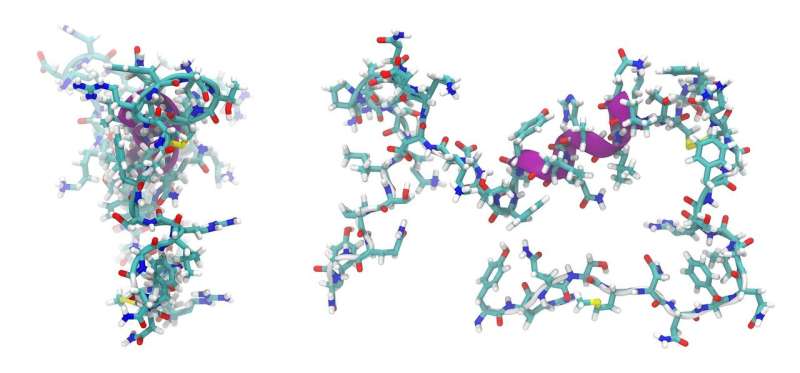Credit: CC0 Public Domain
Small heat-shock proteins (sHSPs) are molecular chaperones that bind to unfolded proteins to prevent protein aggregation and defend against cellular stress. Mutations in human sHSPs are associated with inherited diseases including cataract and cardiomyopathy.
Individual sHSPs bind to each other to form oligomers. Hassane Mchaourab, Ph.D., and colleagues previously discovered that insertion of a small peptide into a bacterial sHSP could cause it to expand from a 24-subunit oligomer to a 48-subunit oligomer.
The investigators wondered if flexibility in the structure of oligomers contributes to sHSP function. Now, in studies led by Sanjay Mishra, Ph.D., they showed that altering the sequence and length of the inserted peptide generates an array of oligomers with 30 to 38 subunits. The non-uniform collection of oligomers bound to a model protein with higher affinity.
The findings, reported in the journal Structure, support a model in which modular sHSP architecture contributes to the ability of sHSPs to serve as chaperones for a range of unfolded proteins.
More information: Sanjay Mishra et al. Engineering of a Polydisperse Small Heat-Shock Protein Reveals Conserved Motifs of Oligomer Plasticity, Structure (2018). DOI: 10.1016/j.str.2018.05.015
Journal information: Structure
Provided by Vanderbilt University























